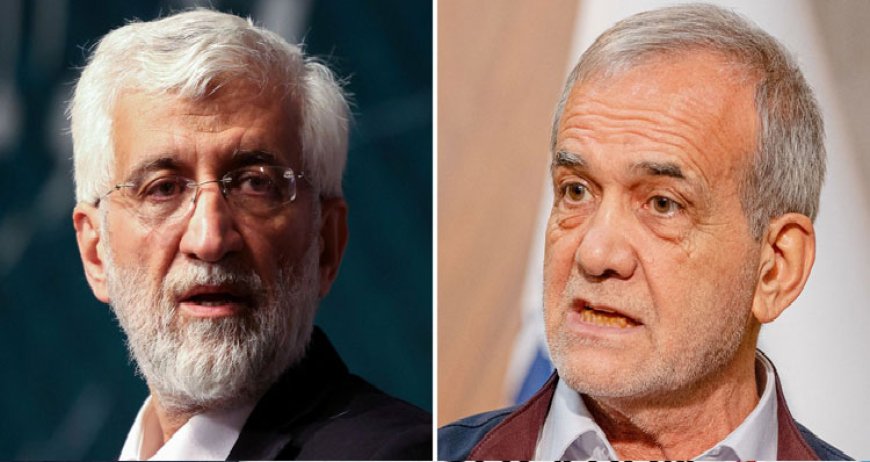Polls open in Iran presidential election runoff

1. Polls opened Friday for Iran’s runoff presidential election, the interior ministry said, pitting reformist candidate Masoud Pezeshkian against ultraconservative Saeed Jalili in the race to succeed Ebrahim Raisi, who died in a May helicopter crash.
Summary of Iran's Presidential Election:
1. **Supreme Leader Participation:**
- Ayatollah Ali Khamenei, Iran’s supreme leader, cast his ballot as the polls opened.
2. **Election Context:**
- The election is taking place amid regional tensions over the Gaza conflict, disputes with the West regarding Iran’s nuclear program, and economic challenges due to sanctions.
- The election was brought forward due to the death of former president Ebrahim Raisi in a helicopter crash in May.
3. **First Round Results:**
- **Pezeshkian:** Received around 42% of the vote.
- **Jalili:** Received 39% of the vote.
- Only 40% of eligible voters participated, the lowest turnout since the 1979 Islamic Revolution.
4. **Candidates:**
- **Masoud Pezeshkian:**
- A 69-year-old heart surgeon and reformist.
- Supported by former reformist presidents Mohammad Khatami and Hassan Rouhani.
- Advocates for "constructive relations" with the West to end Iran's isolation.
- **Saeed Jalili:**
- A 58-year-old hardline former nuclear negotiator.
- Opposes the 2015 nuclear deal and advocates for an uncompromising stance against the West.
- Backed by other ultraconservative figures who dropped out before the first round.
5. **Debates and Campaigns:**
- The candidates discussed economic issues, international relations, voter turnout, and internet restrictions in their debates.
- Both candidates acknowledged the low turnout and expressed their concerns.
6. **Public Sentiment:**
- Many Iranians are discontent with their living conditions and government management.
- Young voters like Ali, a 24-year-old student, see Pezeshkian as a candidate who could open Iran to the world.
- Supporters of Jalili, like 40-year-old Maryam Naroui, believe he is the best option for the country's security.
7. **Outcome and Authority:**
- The new president will implement policies set by the supreme leader, who holds ultimate authority in Iran.
This election will determine Iran's direction amid ongoing challenges and reflects the diverse political sentiments within the country.
















































